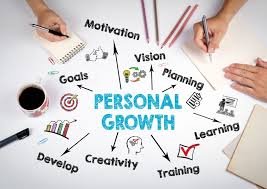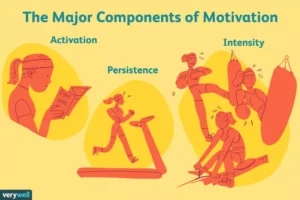Introduction
We live in an age of constant noise — social media alerts, work deadlines, traffic, and endless responsibilities. Amid this chaos, mindfulness has become a modern necessity. It is not about escaping reality but about living it more consciously and peacefully. Mindfulness helps us slow down, breathe, and truly experience life as it unfolds — moment by moment.
Understanding Mindfulness
Mindfulness simply means being fully present. It’s about paying attention to your thoughts, emotions, and surroundings without judgment. Instead of reacting to every thought or situation automatically, mindfulness allows us to pause, observe, and respond calmly.
In simple words:
“Mindfulness is the art of being awake to life.”
It’s not something we need to learn from scratch — it’s a quality we already have, but we often forget because we’re too distracted.
The Origin of Mindfulness
Though mindfulness has ancient roots in Buddhist traditions, it is now widely used in modern psychology and healthcare. Scientists like Jon Kabat-Zinn introduced mindfulness into Western medicine in the 1970s through programs like Mindfulness-Based Stress Reduction (MBSR). Since then, it has helped millions of people manage stress, anxiety, and emotional pain.
Why Mindfulness Matters Today
In our fast-paced, digital world, our minds are constantly jumping between the past and the future. We replay mistakes or worry about what’s next, rarely being here — in the now.
Mindfulness helps break this cycle. It teaches us to appreciate simple moments — the taste of food, the warmth of sunlight, the sound of laughter — that we often overlook.
Benefits of Mindfulness
Mindfulness benefits the mind, body, and spirit. Here are some of the most powerful advantages:
🌿 1. Reduces Stress and Anxiety
When you practice mindfulness, you learn to observe your stress instead of being consumed by it. Breathing exercises and meditation calm your nervous system, helping you stay composed under pressure.
💭 2. Increases Focus and Clarity
Mindfulness trains your brain to stay in the present. Over time, this strengthens your ability to concentrate and make better decisions without mental clutter.
❤️ 3. Improves Emotional Intelligence
By becoming more aware of your emotions, you respond thoughtfully instead of reacting impulsively. This leads to healthier relationships and better communication.
😴 4. Encourages Better Sleep
A mindful evening routine — such as slow breathing or body relaxation — helps release tension, quiet the mind, and prepare the body for deep, restful sleep.
🌞 5. Boosts Happiness and Gratitude
When you live mindfully, you start noticing the beauty in ordinary moments — a smile, a sunset, or a kind word. This awareness naturally nurtures gratitude and joy.
How to Practice Mindfulness
You don’t have to sit cross-legged for hours to practice mindfulness. It’s something you can do anytime, anywhere.
Here are a few simple yet powerful ways:
🧘♀️ 1. Mindful Breathing
- Sit comfortably and close your eyes.
- Take a deep breath in through your nose, hold it for a second, and slowly exhale.
- Focus on your breathing — the rise and fall of your chest.
- If your mind wanders, gently bring it back to your breath.
Even a few minutes a day can calm your mind and refresh your focus.
🍽️ 2. Mindful Eating
- Eat slowly, without watching TV or scrolling on your phone.
- Notice the taste, texture, and aroma of your food.
- Be thankful for every bite.
This simple act connects you with the present and improves digestion too.
🚶♂️ 3. Mindful Walking
While walking, pay attention to your steps, your breath, and your surroundings. Feel the earth beneath your feet. This practice turns walking into a form of moving meditation.
🕯️ 4. Mindful Moments
Pause several times a day to check in with yourself:
- How am I feeling right now?
- What am I thinking?
- Am I here, or lost in thought?
These small pauses can transform your day.
Mindfulness in Daily Life
Mindfulness isn’t just for meditation sessions — it’s a way of living.
💼 At Work:
- Start meetings with a minute of silence or deep breathing.
- Focus on one task at a time instead of multitasking.
- Take short breaks to stretch or breathe mindfully.
🏠 At Home:
- Be fully present with your family — listen without distractions.
- Do household chores slowly and intentionally.
- Practice gratitude for the people and comforts around you.
📱 With Technology:
- Before unlocking your phone, take one mindful breath.
- Limit notifications that steal your attention.
- Set aside “tech-free” time each day.
Challenges and How to Overcome Them
At first, mindfulness may seem difficult because the mind naturally wanders. That’s okay — the goal isn’t to empty your mind but to notice when it drifts and gently bring it back.
Common Challenges:
- Feeling restless or impatient.
- Expecting quick results.
- Getting frustrated when distracted.
Solutions:
- Start small — even 5 minutes a day helps.
- Be kind to yourself. Mindfulness is a skill, not a competition.
- Remember, every breath is a new beginning.
Scientific Support for Mindfulness
Many studies confirm the benefits of mindfulness. Neuroscientists have found that regular meditation changes brain structure, increasing gray matter in areas responsible for memory, empathy, and emotional control.
It also reduces activity in the “default mode network,” the part of the brain linked with overthinking and stress. In short — mindfulness rewires the brain for peace and focus.
Mindfulness and Compassion
A powerful side effect of mindfulness is compassion — both for yourself and others. When you slow down and pay attention, you notice that everyone, including you, struggles in some way. This awareness softens your heart, replacing judgment with kindness.
Mindfulness for a Better Future
Imagine a world where people listen with empathy, speak with awareness, and live with purpose. Mindfulness isn’t just a personal practice — it’s a collective path to peace. It can help communities heal, workplaces grow healthier, and relationships thrive.
By teaching mindfulness to children, employees, and families, we can build a more emotionally intelligent and compassionate society.
Conclusion
Mindfulness is not a luxury — it’s a necessity in today’s busy world. It reminds us that life is happening right now, not in our memories or worries.








